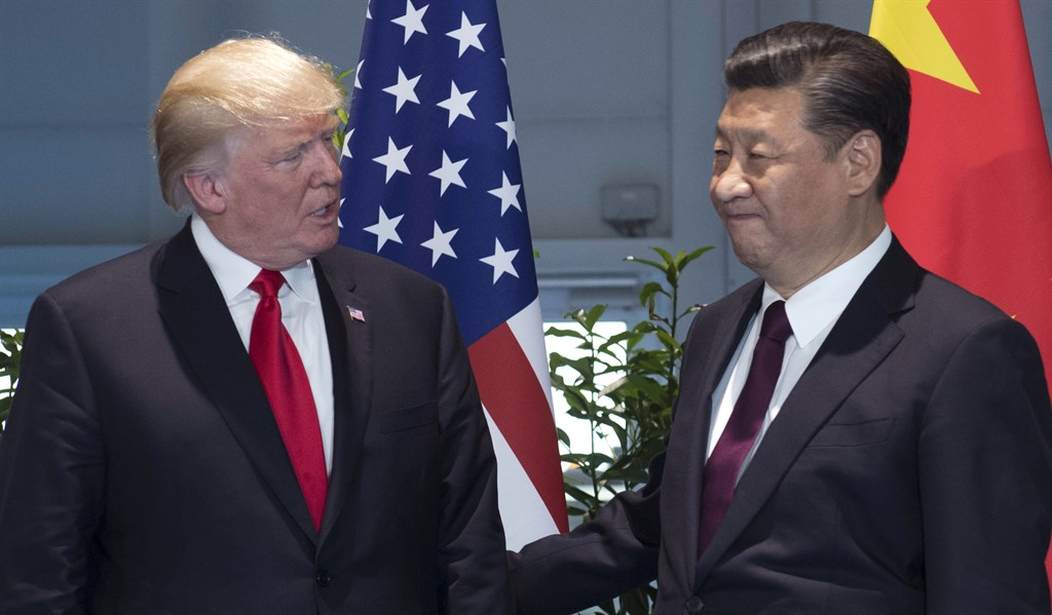Did China just give Donald Trump a green light to retaliate if North Korea launches missiles at US soil? The Global Times, which has acted as the unofficial mouthpiece of Beijing, warned Pyongyang that any US response to an attack on its forces or soil would not be met with any resistance from China. The editorial also adds a big caveat to that green light, however:
China won’t come to North Korea’s help if it launches missiles threatening U.S. soil and there is retaliation, a state-owned newspaper warned on Friday, but it would intervene if Washington strikes first.
The Global Times newspaper is not an official mouthpiece of the Communist Party, but in this case its editorial probably does reflect government policy and can be considered “semiofficial,” experts said. …
In an editorial, The Global Times said China should make it clear to both sides: “when their actions jeopardize China’s interests, China will respond with a firm hand.”
“China should also make clear that if North Korea launches missiles that threaten U.S. soil first and the U.S. retaliates, China will stay neutral,” it added. “If the U.S. and South Korea carry out strikes and try to overthrow the North Korean regime and change the political pattern of the Korean Peninsula, China will prevent them from doing so.”
China is warning both sides here, but not equally. It’s helpful to read the whole editorial, in which the Global Times equates the threatened Hwasong-12 missile launches with the recent stealth bomber overflights of South Korea, and specifically calls out the US for its plans to conduct “pre-emptive strikes” with those bombers. China’s warning both sides to stop:
The US and North Korea have both ramped up their threatening rhetoric. The Pentagon has prepared plans for B-1B strategic bombers to make preemptive strikes on North Korea’s missile sites. US Secretary of Defense James Mattis issued an ultimatum to North Korea on Wednesday to “cease any consideration of actions that would lead to the end of its regime and destruction of its people.” …
In the near future, it would be highly sensitive if US B-1B fighter jets fly over the Korean Peninsula or North Korea launches missiles in the direction of Guam. Both sides would upgrade their alert to the highest level. The uncertainty in the Korean Peninsula is growing.
China’s attempting a nuanced balancing act here in an attempt to stave off a war, which it sees coming from “reckless … miscalculations,” and which neither side really wants. This threatens both sides with severe consequences, depending on which one makes the most reckless miscalculation. If the US strikes first against North Korea, China will line up with Kim, which means a pre-emptive war immediately becomes a wider conflict. A war on that scale could pull in Russia too, which has a short shared border with North Korea, although that seems unlikely. If North Korea attacks first and we use it as a pretext to destroy the Kim regime, China will also come in on Kim’s side. However, if the US merely retaliates in kind, China will sit it out, and almost certainly Russia will as well.
Right now, the biggest threat is the Hwasong-12 launches threatened for later this month. China seems especially keen to pressure Kim into backing down on that, as the threat to American soil is so obvious that it begs for retaliation. In that sense, China’s message today is aimed more at Kim Jong-un than Donald Trump — or perhaps more aimed at the North Korean military, who will bear the brunt of US retaliation. It could be a subtle hint to Kim’s generals that perhaps it’s time for a change after three generations of hereditary leadership.
It also answers another question raised by the Associated Press. Late last night, they asked whether the US should try to shoot down the four missiles if Kim’s nutty enough to launch them:
A failed intercept would likely embolden the North to move ahead even faster. It could also have a chilling psychological impact on allies like Japan and South Korea, which might seek to build up their own nuclear forces independently of Washington. Rival powers China and Russia, meanwhile, might see the exposed weakness as an opportunity to push forward more assertive policies of their own.
Even if it were successful, a policy of shooting down missiles would undoubtedly raise tensions, and put an uncomfortable squeeze on American allies on the front lines.
Worst of all, if American intentions aren’t clear, an attempt to intercept a missile might be misinterpreted by Pyongyang — or Beijing or Moscow — and escalate into a real shooting war.
China’s making it pretty clear that they don’t care. As far as the risk of failed intercepts, the US-produced Iron Dome in Israel seems to do pretty well [see update], and our THAAD and SM-3 systems have a good field test record as well. Finally, we build these systems to defend against missiles fired at US soil, so … remind us why we should stand down when they actually come at American military bases again?
Final thought: Did the Global Times editorial prompt this tweet?
https://twitter.com/realDonaldTrump/status/895970429734711298
Update: Iron Dome and Patriot aren’t truly relevant, as both are designed to deal with short-range, non-ballistic missiles rather than re-entry vehicles on intermediate ballistic missiles like the Hwasong-12. Also meant to include THAAD on that same list. Thanks to Carleton for the feedback, who also notes the SM-3 is in short supply.








Join the conversation as a VIP Member